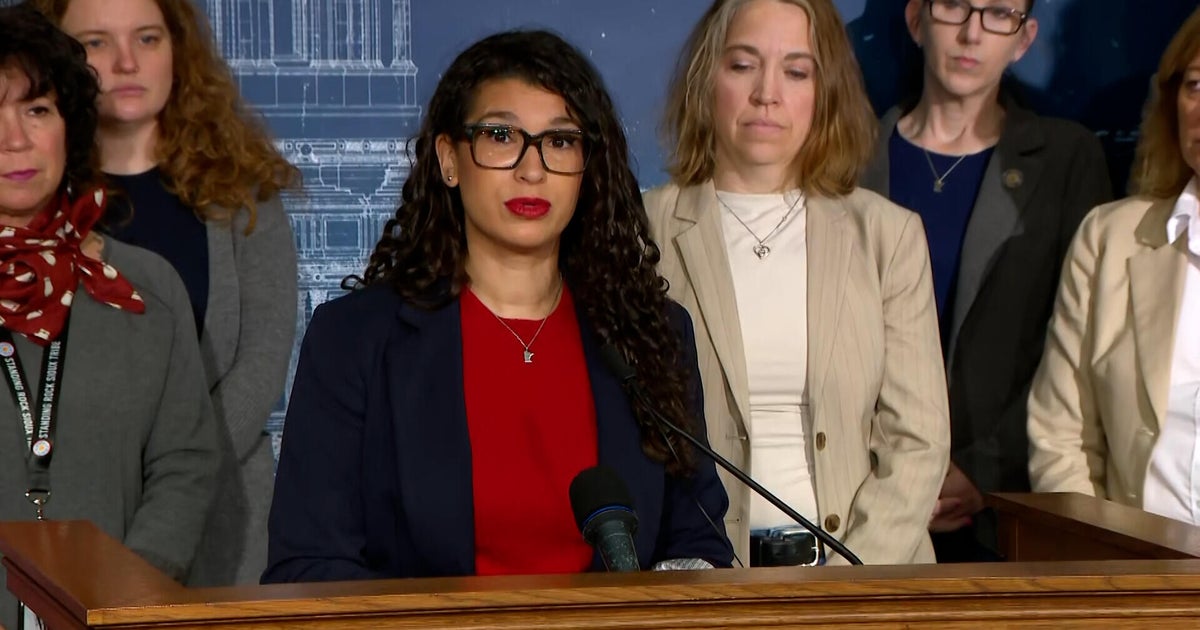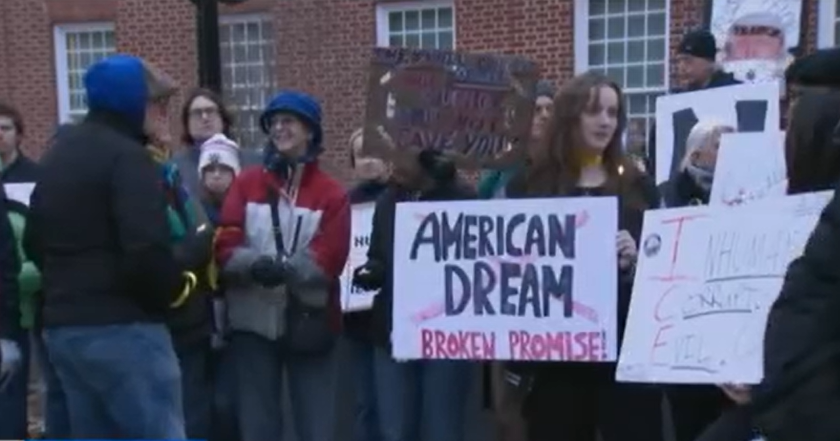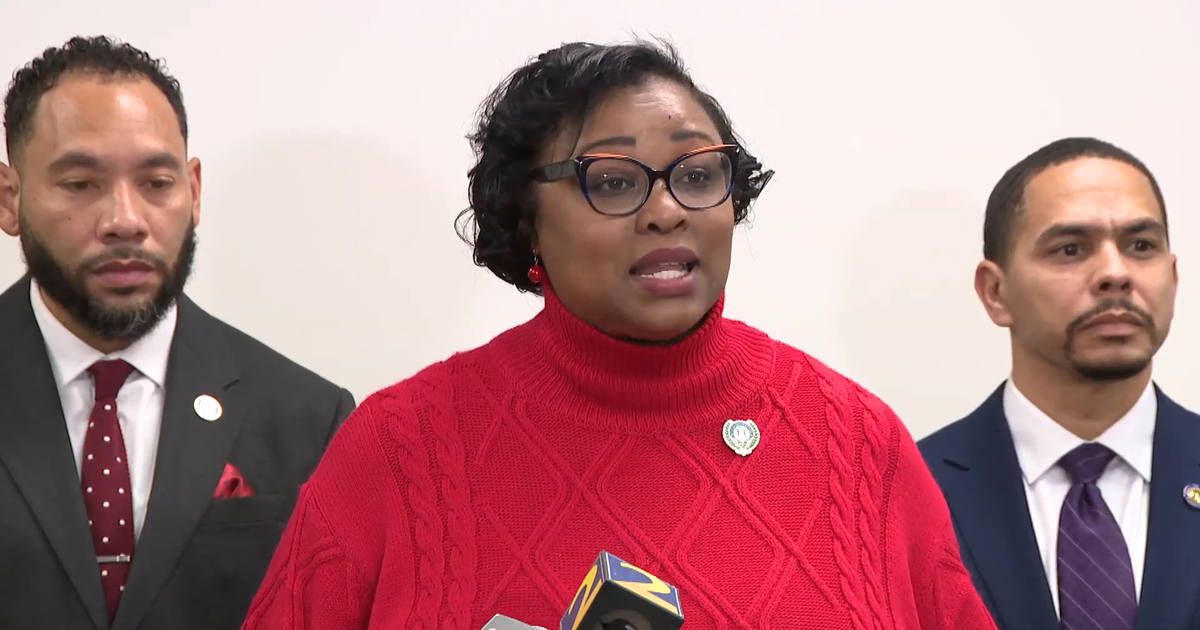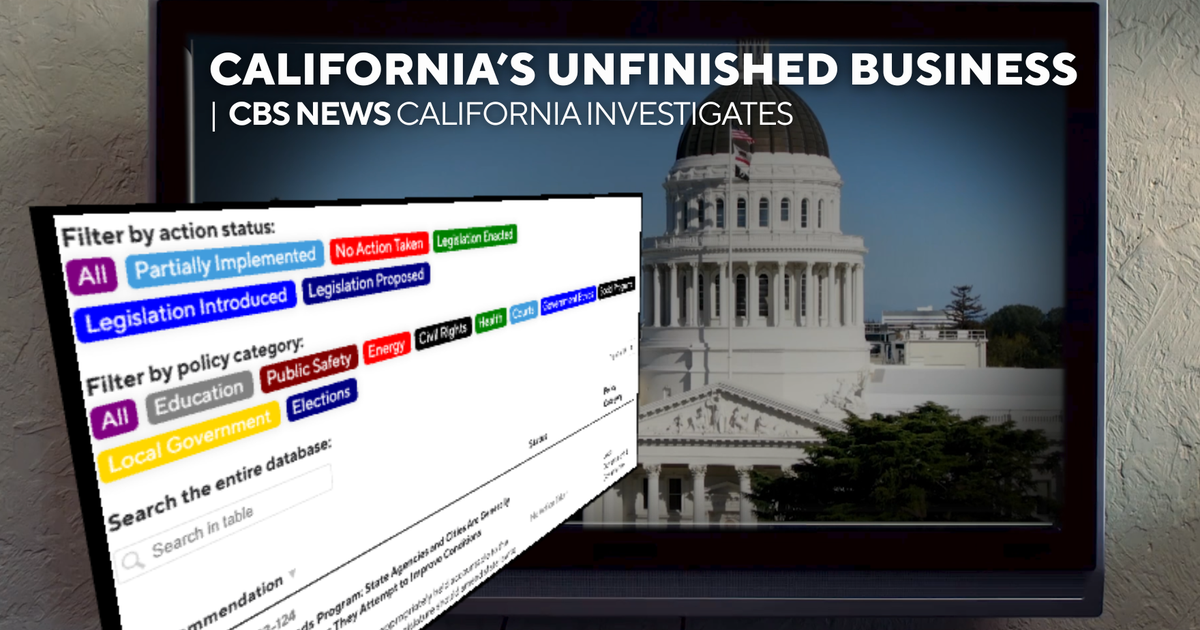Some GOP Lawmakers Reject Advice To Moderate
WASHINGTON (AP) - After Mitt Romney's 2012 loss, many senior Republicans concluded the party must moderate its image on issues such as immigration and reproductive rights.
But some GOP lawmakers have done the opposite.
They imposed new restrictions on abortion in several states. They are strongly resisting a broad immigration bill in the U.S. House. They're waging a steady assault on "Obamacare," with some House and Senate Republicans vowing to shut down the government if that's what it takes to choke off the health care law Congress enacted in 2010.
These trends worry establishment Republicans. And they expose a growing split in the GOP, which is driven more by campaign strategy than ideology.
One side focuses chiefly on presidential elections, saying that Republicans must change course to compete in 2016 and beyond after having lost the popular vote in five of the last six contests.
The other side is a congressional wing, driven largely by House conservatives focused on their own elections, and determined to avoid primary challenges from the right.
To an extent not mirrored among Democrats, these two GOP wings sometimes work against each other. For instance, a Republican Party- sanctioned study of Romney's loss concluded the party must embrace "comprehensive immigration reform" to stem losses among Hispanic voters nationwide.
The Senate has passed such a bill, which would create a pathway to citizenship for millions of immigrants living here illegally. But dozens of House Republicans oppose it, because their conservative supporters dislike what they consider "amnesty" for law breakers.
In tone, if not always in substance, a number of elected Republicans seem to be edging farther right -- and toward greater combativeness with President Barack Obama -- on numerous issues.
For nearly two decades, Republicans shunned the idea of shutting down the federal government in budget disputes with Democratic presidents. They recalled the two partial shutdowns in the mid-1990s that angered many Americans, who in turn blamed Republicans more than President Bill Clinton and his fellow Democrats.
Now, however, prominent Republicans are urging colleagues to close the government temporarily this fall -- by refusing to fund federal operations beyond Sept. 30 -- if that's the only way to cut off money for Obama's health care law.
Ted Cruz of Texas, one of the dozen Republican senators who signed a letter to that effect, says the mid-1990s experience wasn't so bad. The predicted "parade of horribles," Cruz said in a recent Senate speech, "did not occur. Social Security checks continued to flow. The military continued to be funded. ... Planes didn't fall out of the sky."
Cruz taunted fellow Republicans who denounce Obama's health care law but refuse to shutter the government to block it. "If you fund it, you're for it," he said.
Some senior House and Senate Republicans call Cruz's plan political suicide. They say it could cost the GOP control of the House in next year's elections. Sen. Bob Corker, R-Tenn., told constituents on Tuesday that the effort is "self-defeating" and that most of his colleagues who signed on to the initiative now regret it.
Democratic activist Brad Woodhouse said of Cruz's efforts: "Please, Lord, bring it on!"
Romney himself ended months of silence in a speech to New Hampshire donors Tuesday night that warned congressional Republicans against risking a government shutdown. He called on his party leaders to "stay smart" and said there are better ways to eliminate the health care law.
"I know, I lost. I'm probably not the first person you'd ask for advice," Romney said in remarks distributed by his office. "But because we all learn from our mistakes, I may have a thought or two of value."
Abortion is another issue that has tripped up some high-profile Republican candidates. Two Senate nominees lost competitive races last year after making explosive comments about pregnancies resulting from rape.
Establishment Republicans said the two men did not speak for the party. But Democrats used the incidents to argue the GOP is insensitive to women's rights in areas that include access to abortion.
This year, several Republican-controlled state governments have tightened abortion regulations. Some have outlawed abortions 20 weeks after conception. Wisconsin, which tilts Democratic in presidential elections, now requires women to get an ultrasound before having an abortion.
The party's official study of Romney's loss -- irreverently called an "autopsy" report -- cited Republican activists "frustrated by the party's negative image among women." On messaging in general, the report said, "we must change our tone, especially on certain social issues that are turning off young voters."
Few issues worry presidential-oriented Republicans more than immigration. A Who's Who of Republican donors and former officials sent a letter to lawmakers urging them to enact a law giving "legal status" to the roughly 11 million immigrants living in the country illegally. The more than 100 signers included past cabinet members, former Vice President Dan Quayle, and prominent campaign adviser Karl Rove.
Such efforts seem to have modest impact in the House, where Republicans intensely track sentiments of conservative activists who dominate GOP primaries back home.
"Immigration is proving as big a challenge as people feared it would be," said Washington-based Republican adviser Sara Taylor Fagen.
Campaign consultants say people who focus on presidential or gubernatorial elections view politics differently from those elected to the U.S. House or to state legislatures from districts, which often are drawn with strong partisan slants.
"The nature of how House members get elected is fundamentally different from presidential campaigns," said veteran consultant Terry Holt. But he said he's not worried that the party is not "making progress where we're not making progress," because the next presidential election is more than three years away.
He's not alone. Still, if congressional Republicans spearhead a government shutdown this fall, some party insiders say, they'll be moving the party in the wrong direction.
"Republican leadership is courting disaster here," said GOP campaign veteran Steve Lombardo. "Voters are in no mood for this at a time when the country is politically fractured and teetering on economic recovery. This is very dangerous politics."
(© Copyright 2013 The Associated Press. All Rights Reserved. This material may not be published, broadcast, rewritten or redistributed.)
Latest News:
Top Trending:







